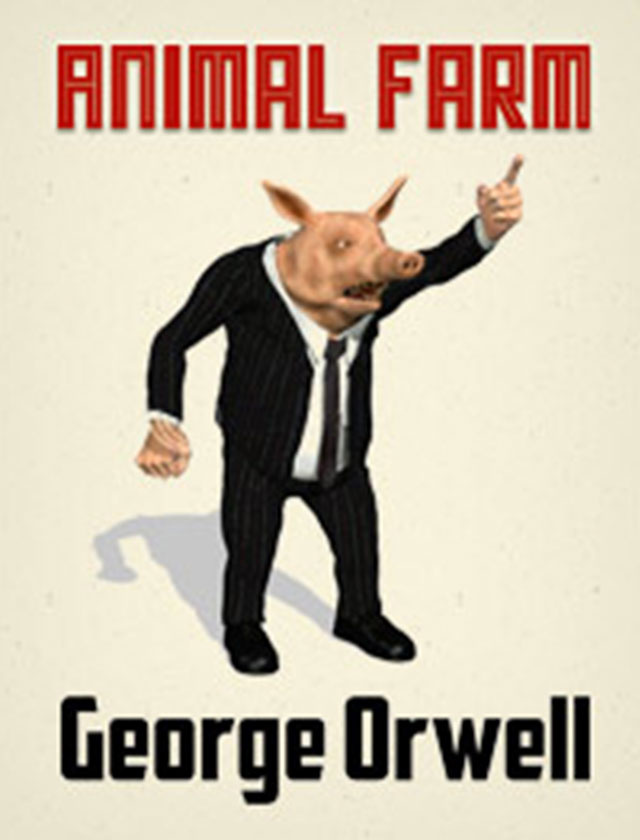Animal Farm
by George Orwell
Introduction and Background
Animal Farm is a story that cannot be understood and appreciated without a basic understanding of 20th-century European history. While author George Orwell may have featured talking, thinking animals and labeled the story a fairy tale, it very clearly references events in Europe in the time period leading up to and during World War II. Animal Farm is openly critical of all of the major players in the European theater of that time, and each is referenced by an animal at the farm. This should come as no surprise, given that Orwell lived in Europe and was politically active during that time period. Like many Europeans who were tired of the confines of rigid class-based systems, Orwell could have been considered sympathetic to Communist or Socialist ideals, but was seemingly disappointed by Stalin’s subversion of those ideals for personal gain. In fact, this disappointment is what helps characterize Animal Farm as anti-utopian literature. There are dueling traditions in literature in which authors either describe a utopia, or a seemingly perfect world, or else they take an anti-utopian standpoint in explaining how there is no way to maintain such a perfect world. Animal Farm, which describes the descent of Old Major’s proposed ideal world of animal equality into a totalitarian state run by Napoleon, is decidedly anti-utopian.
One of the interesting characteristics of Animal Farm is that, while it is critical of Communism in practice, it is not critical of Communism as an ideal. Nothing in the novel suggests that Old Major’s ideas about ending the exploitation of animals were somehow wrong. In fact, Orwell describes the animals as being mistreated while under the farmer’s control. This leads one to believe that Orwell believed, theoretically, in the ideal of Communism or Socialism, and was critiquing not the ideal, but the possibility of the ideal. This is an interesting perspective, given Orwell’s own background, which would have placed him in the petty bourgeoisie social class.
George Orwell...
Sign up to continue reading Introduction and Background >